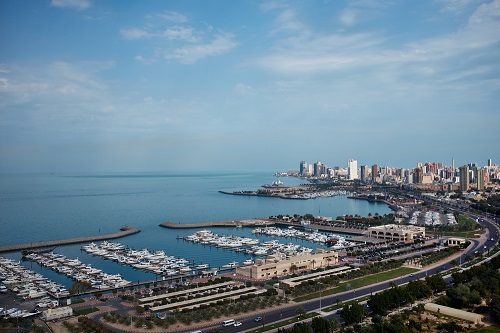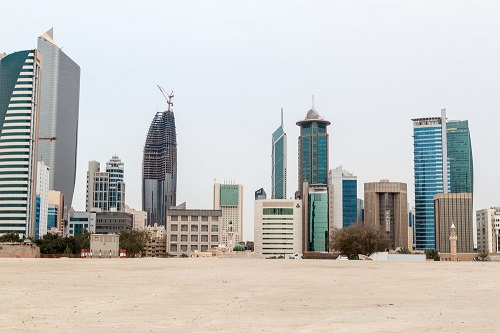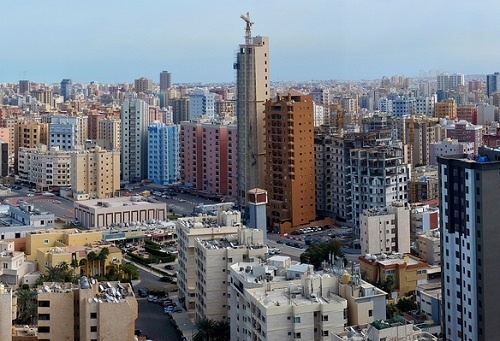Kuwait has some excellent provision for both optical and dental care. At the time of writing, you should still be able to access treatment in Kuwait’s public healthcare system; basic dental treatment, for example, is covered under the national health insurance scheme.However, the government is trying to restrict access to the public healthcare system, so that only Kuwaiti nationals can use it. Therefore, if you are an expat, then, in the future, you will only be able to access the private sector. The government is also attempting to encourage medical tourism.
With this in mind, the state is putting a large amount of investment into the building of new hospitals, specifically for overseas visitors and expat residents. When this scheme, known as Dhaman, is in place, you will be able to register with the new one-stop provider and use hospitals that are specifically built for the expat community.
The first Dhaman centre, partnered with the Mayo clinic in the US, opened in Hawally in 2019, and four more are under construction. At present, this establishment charges private sector prices, but the intention is to bring it more in line with public costs.
How to register with a dentist
If you are looking to register with a dentist, then it may be worth asking friends and colleagues for recommendations. Alternatively, you could look online for a dental practice. You will find plenty of private dental provision, especially in major urban centres.
Kuwait currently has around 300 private dentists. Private sector dentists suggest that you ask the following questions:
• What accreditations, both national and international, does the dental clinic have?
• Do the medical staff speak English (or whatever your language is)?
• Do you have your own dental laboratory? If not, what are the dental laboratories you work with and why?
• How many years of experience do you have performing dentistry? How often have you performed dental implants?
• Can I speak to any former patients from my own country for testimonials?

To what extent does national insurance cover dentistry?
At present, the system is in transition. As an expat, you may still be able to access some dental care in the public sector if you pay out of pocket, but this may be restricted once the new Dhaman clinics come online.
Below are some sample costs of various dental procedures for expats, which were raised in 2017. However, note that the dental system, including pricing, may change.
• Initial appointment and for each subsequent treatment: KD2 (US$6.61)
• Prosthodontics for the upper and lower jaws: KD30 (US$96)
• Denture for either jaw: KD15 (US$50)
• Partial dentures: KD10 (US$33)
• Fixing of a mobile tooth: KD5 (US$17)
• Extraction: KD2 (US$6.61)
• Surgical extraction and removal of an abscess: KD5 (US$17)
• Treatment of fractures of the mouth and jaw: KD35 (US$116)
• Treatment of gums: KD5 (US$17)
• Operations of all types for each tooth: KD10 (US$33)
• Root canal with partial removal: KD2 ($6.61)
• Preliminary treatment for a front tooth: KD5, and for a back tooth: KD10 (repeated treatment of a front tooth will cost the same, but of a back tooth will be KD15)
• Temporary fillings: KD2 ($6.61)
• Permanent fillings: KD5 (US$17)
• Temporary cleaning and treatment for children: KD2 ($6.61)
• X-rays: KD2 per tooth ($6.61)
• Panoramic x-ray: KD5 (US$17)
• CT scan: KD10
Accessing private dental treatment
If you seek treatment in the private sector, you will find plenty of choice; private dental clinics have increased in number over the last decade. Costs will be more in the private sector than in the public system. At present, Dhaman prices for dental care have not yet been set, as the system is under development. You will need to contact your selected clinic directly for costs, and check, too, whether they will accept your insurance.
To what extent does national insurance cover optical care?
Some care is provided under the national scheme, but your options for accessing this, as an expat, are very limited. Most expats in the country therefore rely on health insurance or out of pocket payments for optical care.

How to register with an optometrist in Kuwait
To find an optometrist in Kuwait, you could ask your contacts for recommendations or look online. Optometrists in Kuwait must have:
• A degree in optometry and a recognised professional certification (Doctor of Optometry)
• A registration license from their home country, if they are from overseas (and the country they were most recently employed in, if applicable)
• A dataflow certificate or similar
• At least two years’ experience
You will have little difficulty in finding an optometrist. Some malls have them, and there are chains, such as Vision Express, operating in the country.
Accessing private eye treatment
You will find a large number of optical clinics in Kuwait. Optical tourism, for services such as LASIK corrective eye surgery, has been a growing sector for a number of years, with high class clinics and positive patient outcomes. Laser eye surgery is priced at around US$200 for a consultation and at around US$2000 and upwards for surgery. However, costs vary, so do not be afraid to shop around and ask for testimonials.

